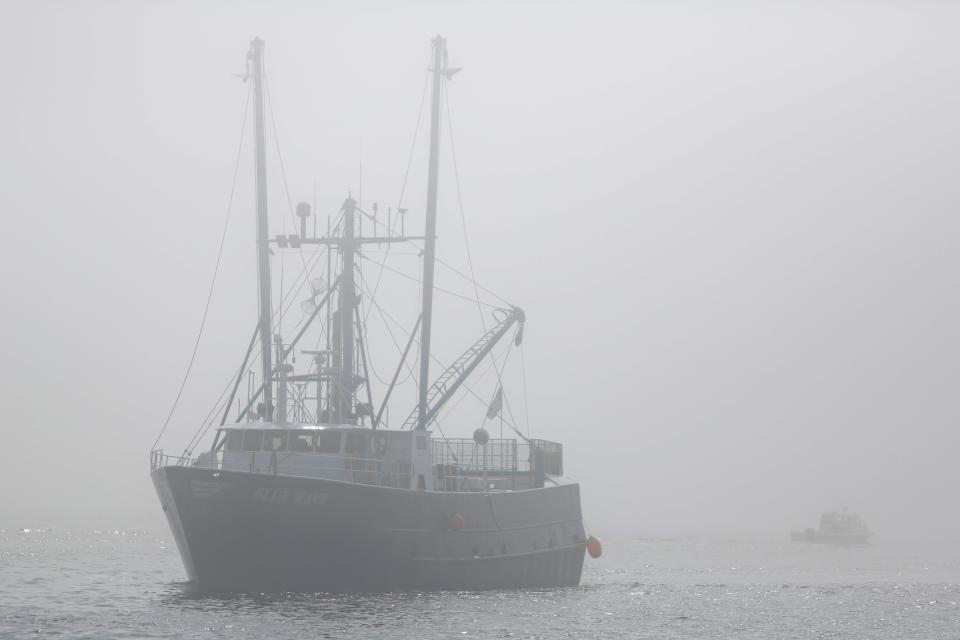Fishermen not feeling the effects of 'marked decrease' in Atlantic cod population
NEW BEDFORD — What started as a research presentation on rising ocean temperatures and decreasing cod supply by the National Oceanic and Atmospheric Administration quickly turned into a revealing conversation about how scientists and their data often do not reflect fishermen’s experiences.
NOAA held a virtual meeting Wednesday focused on the status of Atlantic cod, attended by over 70 fishermen and researchers based in the Gulf of Maine and George’s Bank, which extends from Newfoundland to southern New England.

Findings by a working group of researchers indicated that the lifecycle of the species is being influenced by the environment, specifically rising ocean temperatures, which have changed the fish’s spawning behavior and their predator-prey relationships.
“We are at the point where we are seeing the impact of the temperature increase over the years,” said Lisa Kerr, a researcher at the Gulf of Maine Research Institute. Deep-water temperatures in the Northeast have increased two degrees since the 1980s. The biomass of Atlantic cod is trending downwards year-over-year, meaning the population is on the decline.
Fishermen question implications
Fishermen in the audience did not dispute these findings. What they did question is whether these facts are having the same implications that the researchers believe.
Al Cottone, a Gloucester fisherman, says he feels cod are in different areas, and that he has noticed a change in the tides, too.
“The fish are there but we have to work harder to find them,” he said. “It’s not just cod, it’s all species.”
Others disagreed about the difficulty.
More: New Bedford in line to get $30 million to improve waterfront Marine Commerce Terminal
David Leveille, also a New England fisherman, said he thought it’s more of a cyclical process.
“My experience is not consistent with the water temperature theory,” he said, adding that some years are sparser than others, but it always bounces back."
Increase in cod's predator
Michael Pierdinock, who fishes off the Southcoast and Cape Cod, said he has watched cod’s greatest predator, the gray seal, increase in population.
“I watched the numbers go from 15,000 to 50,000,” he said, but that hasn’t meant there are fewer fish. They just swim lower than the seals can go, he said.
Some expressed frustration about their lack of inclusion in the data collection. Vito Giacalone, who has been fishing off Massachusetts since the 1970s, thinks the researchers are looking in the wrong places at the wrong times.
Wind energy: Offshore wind staging facility coming to New Bedford waterfront
“We’re talking about all these things meaning there’s no cod, but that’s just not what I’m seeing,” he said.
Kerr assured Giacalone and others that working groups always include fishermen and will continue to utilize them as a crucial part of the fishing trawl survey process. She also underscored the importance of remembering that the data is standardized across hundreds of trawl survey results, and that individual experiences aren’t conclusive.
Jackie Odell, executive director of the Northeast Seafood Coalition, said what’s missing from the science is “an understanding of how fishermen are fishing and why they are making those decisions.”
Vineyard Wind:: Offshore Wind Control Center proposed for New Bedford
Fishermen’s behavior is changing but not just based on abundance of fish or lack thereof. Commercial fishermen are subject to regulations and what draw they received in the sector program, Odell said.
The NOAA working group is moving from the data-gathering phase to the application phase – what to do with their information. Among their goals are increasing ecological knowledge among fishermen, and getting more fishermen involved in their processes.
This article originally appeared on Standard-Times: NOAA research presentation on rising ocean temps sparks debate

